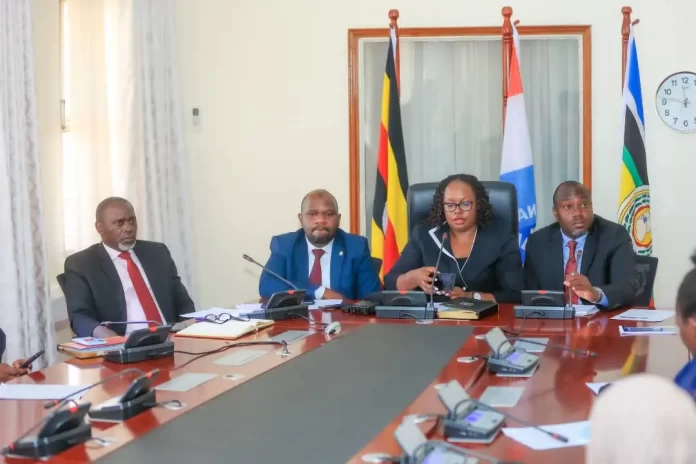Members of Opposition in Parliament have rejected the Inspectorate of Government Bi-annual performance report to Parliament.
In a press statement by the Opposition shadow Minister for Information and Anti-Corruption, and Member of Parliament for Mityana, Joyce Bagala, said that the report was not convincing and called for strict measures in curbing down corruption in Uganda.
“I find that the outcome of the IG’s report is not commensurate to the funds allocated to their office. That is trivial performance registered. The IG is tasked to roll-up the sleeves in enhanced and expedited investigations, prosecutions and conviction of the corrupt,” Bagala said.
According to the statement, since January 2022, the IG has investigated less than half (1528) cases representing performance score of 43.6% of the corruption complaints filed (3504), adding that, they find the under-performance very overwhelming.
“Additionally, only 47% of the cases prosecuted by the IG in the reporting period have resulted in conviction. This conviction rate is abysmally low given the rampant corruption in the country. The IG is certainly not doing enough,” the statement read in part.
This was in response to the Bi-annual performance reports to Parliament. On September 20, 2023, the Inspector General of Government released Inspectorate of Government Bi-Annual Performance Reports to Parliament for the Period from January-June 2022, July-December 2022 and January-June 2023.
According to the report, there is a decline in the conviction rate of corrupt officials from 53 to 40 percent in the period reported. Ugx 7.99Bn was recovered from 3,504 corruption complaints registered between January last year and June this year. In the same period, 43 convictions were made out of the 92 prosecutions concluded.
Additionally, the IG was able to order a refund of Ugx 38Bn from different culprits and they have started paying, out of the Ugx 38Bn, the IG has managed to recover close to Ugx 7.9Bn.
On Tuesday, September 26, 2023, the Opposition Parliamentarians in the Leader of Opposition’s Office at Parliament argued that the IG, under the current budget was allocated Ugx 86.470Bn to carry out its mandate, and hence the country shouldn’t be losing Ugx 10Tn per year as it’s stated in the 2021 report of the IG on the cost of corruption in Uganda.
They tasked the Government to demonstrate political willingness to fight corruption and misuse of public resources through preventive measures rather than reactionary strategies.
The Opposition Parliamentarians said that, by Financial Year 2023/2024, Uganda’s corruption perception index ought to be 33.2. However, the country is at 28.9 against a global average of 48.4 hence this being a manifestation of failed corruption-combating measures primarily caused by lack of political willingness to fight graft.
In the same brief, they asked the Police to interest itself in corruption cases that are settled out of court because this amounts to an admission of corruption.
The Opposition also protested the planned exemption of UPDF officers from publicly declaring their wealth through IGG, but instead do it through Chieftancy of Military Intelligence (CMI). They said that, the Army gets lion share of national budget so there are no threats to Uganda’s national security if their wealth is rightfully obtained.
“There is no law in this country that indicates that the IGG should abdicate her responsibilities and delegate them to CMI. And we call upon the IGG should she risk, we are going to take her on together with the commandant of CMI because they aren’t mandated anywhere to either receive those instructions or issues to do with declaration of assets,” Member of Parliament for Mukono North, Abdallah Kiwanuka Said.
The Parliamentarians called on the government to enact a law on non-conviction-based asset recovery to create a strong legal framework and an independent institution for the tracing, acquisition, management and disposal of proceeds of corruption.
They called for the establishment of a legal and institutional regime for the protection of witnesses which should cover the phases of investigation and prosecution of corruption cases, and even the post-trial period. The legal framework should include sufficient protection and reward for informers, whistle-blowers and witnesses.















